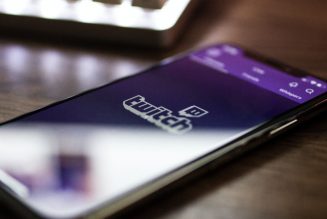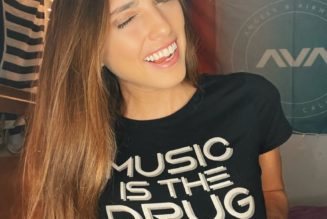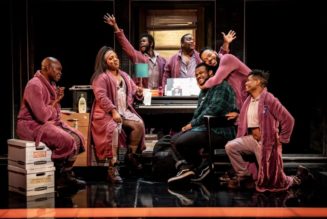Whether you’re a new DJ on the scene or a veteran music producer, taking interviews about the music you make is weird.
It’s uncomfortable and awkward. In fact, for most people, talking about yourself is. In interview settings, it’s not too challenging to see why sharing a homegrown song requires confidence, vulnerability, and even a little courage. Strangely though, not much in the way of written guidance exists out there for musicians, particularly in dance music.
How then should they navigate these encounters? What are some ways interviews go wrong?
We sat down with Kat Bein, a quirky and skilled music journalist with an exhaustive list of legends along her career path, to lay the groundwork for what we believe is a much-needed guide for DJs. Bein has chatted with Boys Noize, Porter Robinson, Louis the Child, Calvin Harris, Carl Cox, Charlotte de Witte and Fatboy Slim—just a handful of the more recent in her rolodex of badass discussions. She also rocks an encyclopedic knowledge of dance music, which adds a colorful flair to her editorial features and conversations about the scene.
Who’s Kat Bein?
Bein covers music as a regular online contributor for Billboard, Spin, Miami New Times and more. Over the last 18-month stretch of the pandemic she also developed a Twitch channel, where she enjoys full creative control and a fresh way to connect with her audience via stream. Her “Kat Calls” program streams on the platform on Thursdays and on Wednesdays, she does a show called “Cutie Club” with two of her best friends in music journalism, Zach Schlein and Jose Duran.
While new and mostly under the radar for now, the Cutie Club takes a delightfully out-of-the-box spin on music education by sharing music videos grouped into a theme. It’s almost like a combination of Pop-Up Video and Mystery Science Theater 3000, but with a fun bunch of brainiac music lovers instead of robots heckling from the front row. Added up, her experience shoots upward and branches like a tree, but it’s rooted in formative moments going all the way back to her college days, where she followed around musicians to share stories about local dance music artists in the school paper.
These days Bein gets a steady influx of pitches from music publicists and record label execs each week, so we asked her what usually sticks. To offer a resource for DJs or producers who are preparing for an interview with a publication, we’ve shared some of the best gems from our conversation below.

Kat Bein interviews Gaspard Augé and Xavier de Rosnay of renowned French electronic otufit Justice.
Jordan Streetzel
Don’t Shoot Yourself in the Foot
“I get a lot of emails,” Bein tells EDM.com. “And if they’re just template emails, I pretty much won’t read them.”
As one of the easiest ways to kill your chances of an interview with a journalist, templates need specific messaging to hit the mark. “It seems like if it’s not personalized to me, no one’s gonna care if I don’t read it,” she added.
Well-organized emails are important, but keeping it simple can make life easier both for you and the journalist you’re sharing your music with. Bein broke it down into bits for us:
“‘Hey, Kat… Like, check this out.’ Here’s an artist. Here’s one to two paragraphs on them and what makes the story. But is there a story behind it? And then here’s the song, and then, ‘Let me know what you think,’ is really good.”
By crafting simpler pitches, you can ensure that you get a foot in the door before you shoot yourself in it.
Know What You Want to Talk About
Once you’ve secured the interview it’s time to prepare for it. Probably the most common way to have one turn south is by not having a topic to focus on or a point to make.
“Know what your message is to the world,” Bein says nostalgically. “Not that it needs to be this super clear thing, but if you have an opportunity to talk to somebody, have something to say that matters to you. Even if that person doesn’t ask you the right question, at the end you can say, ‘I just wanna say one more thing,’ and if you have something to share—some message of positivity or something that matters to you—take it. It’s your moment to say something.”
Beyond carpe-ing the heck out of the diem, Bein had thoughts on the content of what you should share. A lot of artists choose to talk about how they hope to change the world and that’s great, but it’s more important for an interview to be personal—not grandiose.
“You should not be afraid to be yourself, because who you are and what you’ve experienced and the way you see the world is what makes you unique and what makes you special, and you shouldn’t be too concerned about making other people happy with the thing that you’re doing,” Bein continued. “I mean, obviously, you wanna make people happy, but, don’t be what other people expect you to be… Just know who you are, be who you are and be open about that.”
Recommended Articles
Pausing for a second, Bein leans back in her chair and thinks aloud. “I don’t know if that makes any sense,” she admits. “Just be yourself because you are just great the way you are. You’re great. And don’t overthink it too much.”
Be Honest About Who You Are
Knowing who you are and representing that confidently is easier said than done. Where it gets tricky is ensuring you don’t misrepresent yourself a jerk, right?
The best artists are unapologetic about their madness. They own it. And the ones who do it gracefully often become sweethearts.
“The more that you’re honest about yourself in your expression, the more impactful you’re gonna be in the first place,” Bein explains. “Even if you’re being hyper-specific about something that happened to you and you’re, like, ‘Well this never could have happened to anyone else, so why does anyone care?’ It doesn’t matter. Almost the more specific that it is, the better because that feeling is what people can relate to. And so just go ahead and share that.”

Kat Bein sits down for an interview with legendary hip-hop artist Rick Ross.
Credit: Jordan Streetzel
Even if it takes a while to work up the courage to share your music, you should do it. In fact, according to Bein, if it makes you feel awkward and self-conscious to open up about it, then you’re probably on the right track.
“If it feels a little uncomfortable because, ‘I’ve never really shown someone this before,’ then that’s a good thing,” she asserted. “You should follow that part of uncomfortable and see where it takes you… [because] no one can laugh at you for being yourself.”
With practice, the confidence to share yourself comes easier. It’s necessary, Bein says, because ultimately music fans can’t get to know the real you if they never get a chance to know who that is.
“When people care about you, they care about your music,” she explains. “It becomes more than just a hot song they heard in a DJ set for a second, and maybe they Shazamed it or maybe they listened to it later and then that’s it. When they can create a personal connection with you, then your music really matters to them and it stays with them and they look out for your next song.”
Remember Why You’re Doing This
One of the most important things to keep in mind about music interviews is it doesn’t matter which side of the table you’re on.
The money isn’t why you’re doing this. You’re doing it because you love it—finances be damned. For journalists like Bein it’s all about sharing the stories that deserve to be entrenched in the mythos of dance music.
“I, more than anything, just really love to connect with artists who make me feel something when I listen to their music or sound like they really have something interesting to say,” Bein says. “I want to hear what they have to say, and I want to help them get that message out to the world.”
Like the vibe musicians create on the dance floor, journalists have a job to do the same. In either case, that job is best understood as a creative passion, not an obligation to make someone else look good.
“I’m not trying to be an ass-kisser necessarily and I don’t write for artists to feel like I did them a favor, Bein reminds us. “I really write for fans who want to feel connected to the music that makes their lives better.”
Along with enriching people’s lives with hot new tunes, Bein sees it as the responsibility of music journalists to build the bridge from music industry obscurity to the hearts of the weirdos who will love them most.
“I wanna represent people accurately while also building that connection for their fans, because I’m a fan,” she says with a smile. “Because that’s how I grew up, reading music journalism. I was that nerdy kid who wanted to read anything I could about the artist that I loved, and that’s what I wanna do now for other nerdy kids.”
For Bein, it helps to remember why she’s doing this in the first place, so for the musician on the other side of the table perhaps it will help to remember your own inner nerdy kid who set you down this path in the first place. Then just sit down and share that person, because in the end, that’s really what it’s all about.
FOLLOW KAT BEIN:
Twitch: twitch.tv/katbein
YouTube: youtube.com/user/KatSaysKill
Twitter: twitter.com/KatSaysKill
Instagram: instagram.com/katsayskill










![Steve Aoki: “Tomorrowland Is Where Technology and Magic Meet” [INTERVIEW]](https://www.wazupnaija.com/wp-content/uploads/2020/07/steve-aoki-tomorrowland-is-where-technology-and-magic-meet-interview-327x219.png)

